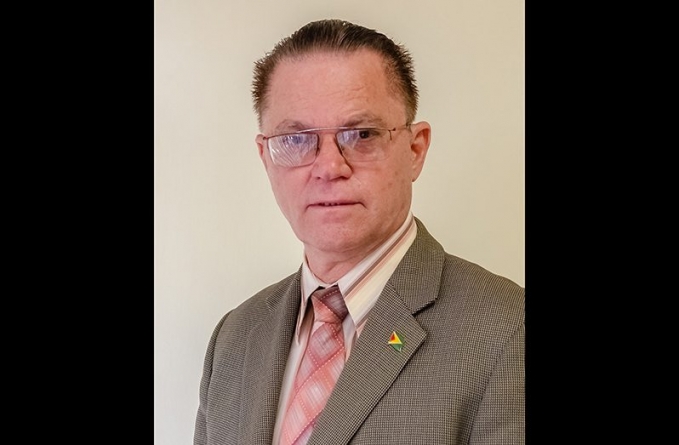No violent, corrupt members allowed in community policing groups
MEMBERS of Community Policing Groups (CPGs) must be the eyes and ears of their communities and no one with a domestic-violence history or who is perceived to be corrupt will become members of these bodies, says Security Adviser to the Home Affairs Minister, Harry Gill.
Gill made these remarks at the official launch of the reformed national Community Policing Group at the Police Officers Training Centre, Eve Leary, Georgetown, on Monday.
Former Senior Superintendent Rishi Dass has been appointed administrator of the CPGs.
“To be successful, CPG members must earn the trust of the residents they interact with on a daily basis,” Gill said, adding: “No one with a history of domestic violence, alcohol abuse or even those perceived to be corrupt would ever be invited to be a part of this noble cause.”
Gill said during the last five years as a result of lack of leadership, the CPGs suffered and became dysfunctional, causing over 2,000 members to leave.
Currently, there are 144 active community policing groups across the country, with 2903 members.
“During this period, there were many reports of wrongdoing amongst other members, vehicular abuse, members misusing their authority and lack of cooperation between CPG members and ranks of the Guyana Police Force,” Gill said.
He explained that the restructuring is geared at fixing the deficiencies of CPGs.
Adding that in the first quarter of the new year, CPGs will participate with the police in a procedural justice programme. Gill said this initiative is to build trust among the citizenry who lack confidence in law enforcement.
He said the training will enhance the way the police and CPGs interact with the public.
CPGs are expected to be the eyes and ears of the Guyana Police Force in their respective communities, while its primary purpose is crime prevention.
The security adviser noted that CPGs are also charged with eradicating social ills within the communities they serve, while promoting social cohesion through sports activities.
Gill noted that the strength of CPGs are expected to increase exponentially throughout the 10 geographical regions and is projected to play a major role in intelligence-gathering and crime prevention.
Commissioner of Police (ag) Nigel Hoppie has pledged the force’s support to CPGs in its efforts to achieve a crime-free society.
“Law enforcement cannot address the issue of crime by itself and we need members of the community… community policing is here to stay, it is the way forward; community policing is results-oriented and should be sustained,” Hoppie said.
Home Affairs Ministry Permanent Secretary Mae Toussaint Thomas said the restructuring of CPGs will better serve citizens and support the Guyana Police Force as a strategic decision was taken to implement groups in Regions One and Eight.
“There is an influx of non-nationals seeking to start a new life and earn a living; this will see communities in Mabaruma, Port Kaituma, Matthews Ridge, Baramita and Mahdia being equipped to fight crimes,” she said.
Regions Seven, Nine and 10, the permanent secretary said will also have new groups that will be monitored by liaison officers to ensure proper communication with the Home Affairs Ministry.
“Currently, there are hundreds of citizens voluntarily dedicating their time and energies to make communities safer. We know the strengths of these groups will increase since persons on a daily basis have been reaching out to the ministry in person and on social media,” the permanent secretary said.
Noting that former Senior Superintendent Rishi Dass, who is now administrator of the CPGs, has over 33 years of experience in the police force, the permanent secretary said this wealth of knowledge will be an asset to the CPGs.






















